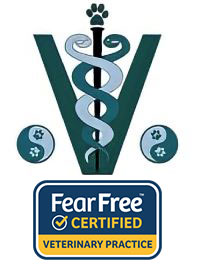Library
-
Most cats care for their kittens with little need for human intervention; if they do not, then their caregivers need to step in. It is critical to maintain a warm environment and ensure they receive enough milk. Kittens’ weight should be checked daily in the first two weeks and any prolonged crying should be investigated. Feeding can be supplemented with commercial milk replacer if needed. Further feeding and vaccination recommendations are discussed. Contact your veterinarian for specific instructions.
-
Most dogs care for their puppies with little need for human intervention; if they do not, then their caregivers need to step in. It is critical to maintain a warm environment and ensure they receive enough milk. Puppies’ weight should be checked daily in the first two weeks, and any prolonged crying should be investigated. Feeding can be supplemented with commercial milk replacer if needed. Further feeding and vaccination recommendations are discussed. Contact your veterinarian for specific recommendations.
-
Ranitidine is given by mouth or injection and is used off-label to treat ulcers and erosions in the stomach and upper small intestine, reflux, or gastrointestinal motility issues. Give as directed. Side effects are uncommon but may include stomach upset. Do not use in pets with a history of allergies to this class of drugs. If a negative reaction occurs, call your veterinarian.
-
A RAST test, or radioallergosorbent test, is a blood test that can be used to determine which allergens are causing a pet's allergies. This test is often performed as part of the workup for atopic dermatitis in cats. The results of allergy testing are typically used to develop a hyposensitization plan for your cat, which helps desensitize your cat to allergens. Many cats treated with hyposensitization, formulated on the basis of RAST results, experience a significant reduction in the signs of allergic dermatitis.
-
A RAST test, or radioallergosorbent test, is a blood test that can be used to determine which allergens are causing a pet's allergies. This test is often performed as part of the workup for atopic dermatitis in dogs. The results of allergy testing are typically used to develop a hyposensitization plan for your dog, which helps desensitize your dog to allergens. Many dogs treated with hyposensitization, formulated on the basis of RAST results, experience a significant reduction in the signs of allergic dermatitis.
-
Observant, devoted, and lively, Ratties make great companions and family dogs. They love to play, but they want to be with you, so they suit families who want a friend and playmate.
-
A recessed vulva, also referred to as a juvenile or hypoplastic vulva, is a conformational issue that occurs in female dogs. In this condition, the vulva is recessed within, or partially hidden by, surrounding folds of skin. Some dogs might have a recessed vulva for their entire life without ever experiencing any visible effects. In other dogs, however, a recessed vulva can predispose them to vaginitis and/or urinary tract infections. Depending on the severity of your dog’s clinical signs, medical or surgical options may be used to treat this condition.
-
Cats have evolved to hide signs of illness and pain. This means that in the early stages of illness, often the only thing that a cat owner may notice is that the cat has become quiet and withdrawn. This article outlines some signs of illness you can look for. In general, any sudden change should alert you that your cat needs veterinary attention. If your cat does not seem right, make an appointment see your veterinarian for an examination as soon as possible.
-
In the wild, a bird will try to uphold a strong appearance when sick. By the time a pet bird begins to display symptoms of illness, it has likely been sick for several days to weeks. Many things contribute to ill health. This handout provides bird owners with a list of signs that will alert them that their bird is sick.
-
Wellness Testing for Senior Dogs
Los perros mayores o geriátricos se encuentran en una etapa en la cual la edad afecta a todos los órganos. Algunos de estos órganos se desgastan más que otros, así que es importante que el perro reciba cuidados especiales cuando se hace mayor.


